Heat pumps are equipment that efficiently uses energy to heat and cool your home. However, do they use electricity, gas, or both? We consulted with the experts who have the following answer for you.
Heat pumps begin to lose their efficiency when temperatures fall below 30 degrees Fahrenheit and will require a backup or supplement heat source, which includes:
- Electric coil
- Gas furnace
Continue reading to know the type of fuel heat pumps use. We'll also discuss supplement heat sources, heat pumps' effectiveness in heating your entire home, and if they should be left to run continuously.
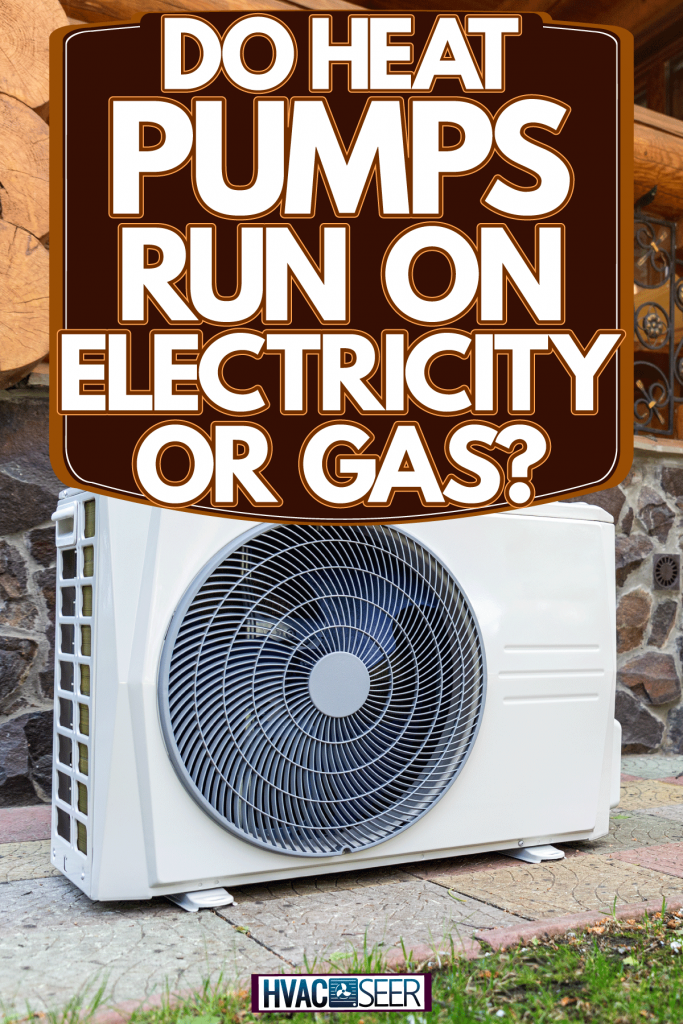
Backup Heat For Heat Pumps
All heat pumps, namely air-source, water-source, and ground-source, run on electricity. However, the air source is the most affordable and economical because of its size and ease of installation.
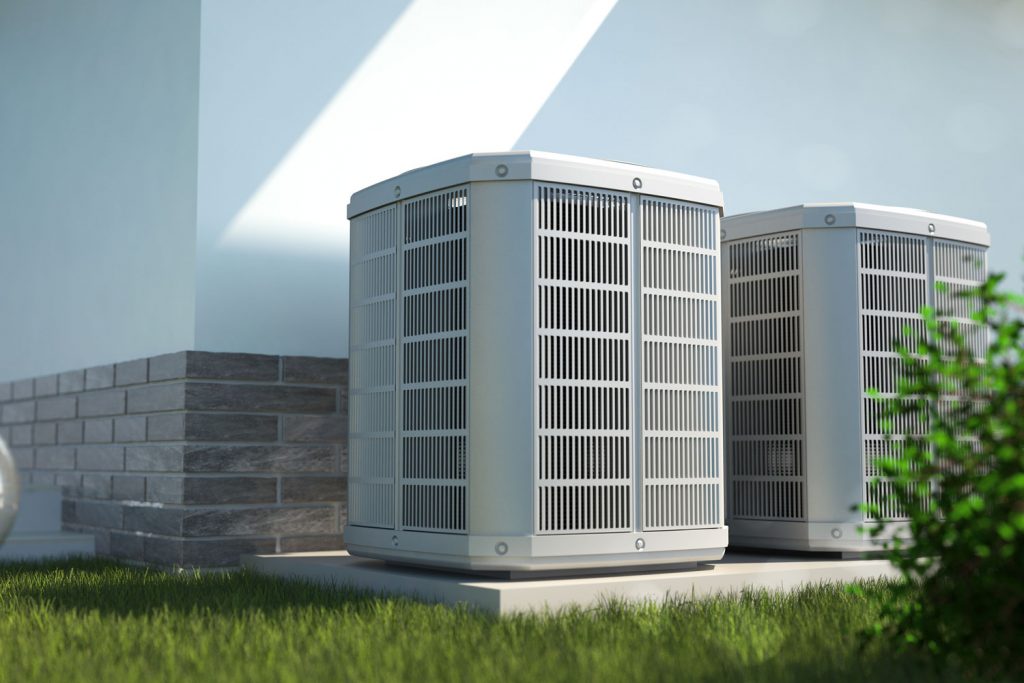
These heat pumps run efficiently when the air outside is above 30 degrees Fahrenheit, but when the temperatures begin to drop, the heat is supplemented from another source and is done in the following ways:
Electric Coil Or Strips
A heat pump will continue to provide warmth in your home at around 70 degrees Fahrenheit, provided the temperatures outside are above 30 degrees Fahrenheit.
But, when the temperatures start to drop lower than that, the heat pump ceases to work efficiently, and its capacity plummets. At this point, the backup heat source found within the system is automatically turned on, and the heat is produced through electric coils or strips to maintain the optimal temperatures in your home.
When the temperature outside starts to rise above 30 degrees Fahrenheit, the auxiliary heat is automatically deactivated, and the heat pump commences to produce heat again.
Below is a video explaining how the heat pump transits from producing heat to using the auxiliary heat source:
Gas Furnace
A heat pump that uses a gas furnace as backup heat is a dual fuel heat pump. It can use either gas or electricity depending on the temperature and season for efficient heating and cooling of your home throughout the year.
As seen above, the heat pump will work at full capacity as long as the temperatures outside are 30 degrees and above, but when the temperature begins to dip, the gas furnace is engaged to supplement the heat.
Can A Heat Pump Heat A Whole House?
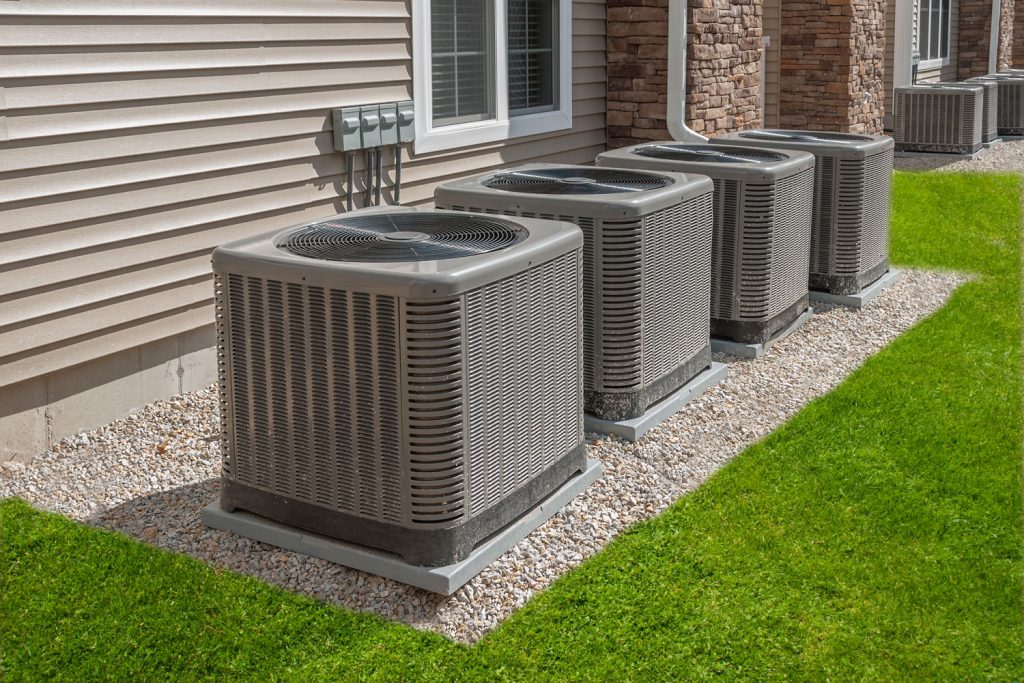
In most cases, one ductless heat pump will only be able to heat your home if it is on a single floor. If the floors are more than one, then your heat pump may not be able to heat all the rooms in your home. So, does this mean you need more than one heat pump? Let's find out more below:
Two-Story Houses
It’s difficult to heat your home if it is two stories or more. For the most suitable solution, your heat pump contractor will ask you for the rooms that you and your family spend most of the time in so that the contractor can concentrate on providing heat in those rooms.
These rooms are usually the dining and living areas on the ground floor and possibly an extra area such as the basement if it is currently habitable.
More often than not, heat pumps are not installed in the bedrooms upstairs, as it is not easy to justify their costs in these smaller spaces.
Split-Entry And Bungalow Homes
Bungalows and split-entry homes can be heated up to 70% of the entire house. This is made possible by placing the heat pump at a spot that allows heat to travel along the hallway and flow over into all the rooms.
Single And Multi Zone Systems
It doesn’t matter the layout of your home, a solution can always be found, and it’s either you will install only one heat pump or more than one.
For example, you may want to heat and cool the main level in your house, but you also want to include the basement or some bedrooms upstairs. To solve this, you will have to decide whether to buy heat pumps for every one of these spaces or a ductless multi-zone heat pump system.
Single Zone Heat Pump Systems
This heat pump system has only one indoor head connected to one outdoor head. The indoor head goes into only one area of the house, and if you needed to heat other areas in your home, you would install extra pumps for each of these extra areas.
This is usually not cost-effective. Check out more pros and cons of this system as shown in the table below:
| Pros | Cons |
| If one indoor unit malfunctions, only one area in your home is affected. | Buying more than one unit can be expensive. |
| Works very well in cold temperatures. | There will be more than one outdoor unit around your home, making it aesthetically displeasing. |
| You can purchase more than one brand, provided they work efficiently. | |
| 20 to 30% more efficient than multi-zone systems. |
Multi Zone Heat Pump Systems
This type of unit system has more than one indoor head connected to one outdoor unit and provides heat in more than one area of your house. It is, therefore, possible to fit two or even three indoor heads into one unit.
Find out more about the pros and cons of this system in the table below to help you decide if you need this type of heat pump system:
| Pros | Cons |
| Costs less than many single-zone systems. | If the outdoor unit fails, then all the other indoor heads also fail. |
| More aesthetically pleasing because only one outdoor unit is fixed outside your home. | Less efficient when more than one indoor unit is connected to the same outdoor unit. |
| You have control over how cool or warm you want each room to be. | Brands that are popular rarely make these types of systems. |
| Might come with remote controls. |
What Temperature Is A Heat Pump Not Effective?
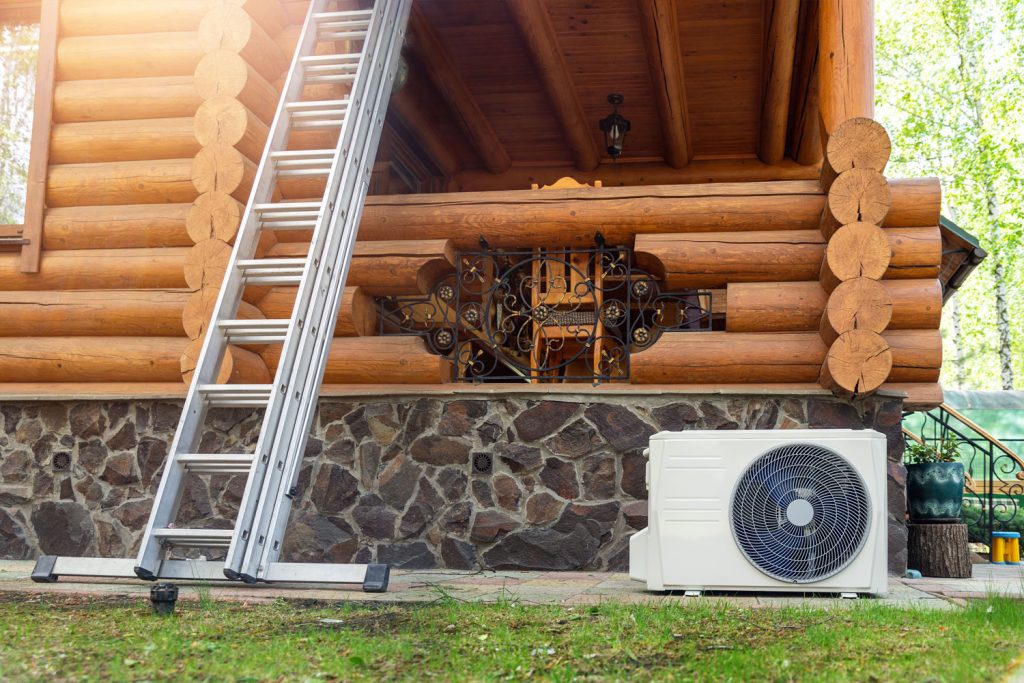
As seen above, a heat pump will stop working at its maximum when the temperatures outside go below 30 degrees Fahrenheit. That is why supplemental heat is needed from another source like the gas furnace if the pump is dual or electric coils when the auxiliary heat source is turned on.
How Much Electricity Does An Electric Heat Pump Use?
The amount of electricity a heat pump uses is determined by its CoP. This unit measures the amount of electric energy used and the amount of heat energy produced.
A heat pump with a CoP of 3 can create 3kW of heat from each one kW of electricity. The more the CoP in your heat pump, the more efficient it is.
In general, most homes need around 12,000 kilowatt-hours (Kwh) of heat each year. For your pump to accomplish this, it will require a CoP of 3, meaning it will use 4,000 kWh of electricity yearly. This figure, however, is contingent on:
- the amount of hot water used in your home
- how big your house is
- if the insulation is up to par
- how efficient your heat pump is
Thus, a heat pump that has a CoP of 4 will use lower electric energy to produce the same amount of heat like that of a heat pump with a CoP of 3.
Should Heat Pumps Be Left On All The Time?
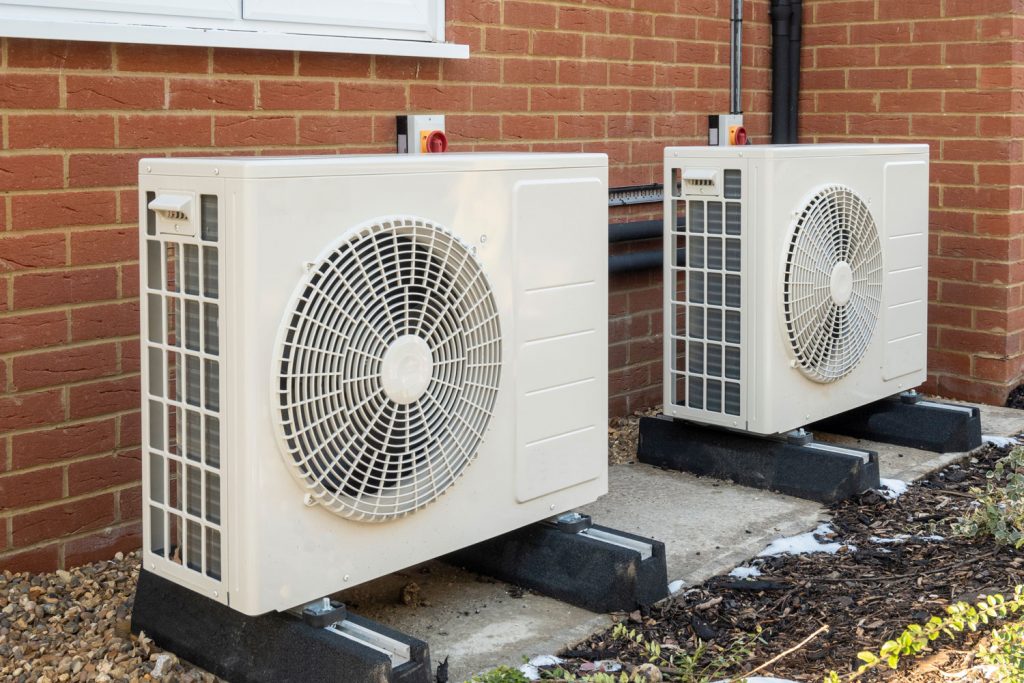
It’s very tempting to leave your heat pump on throughout the day, even when you or your family are not in. But, this will translate into high energy bills.
To avoid excessive waste of energy, it is recommended to heat your home only when you need it. Instead, set the timer to turn on the unit an hour or less before you get home.
In Closing
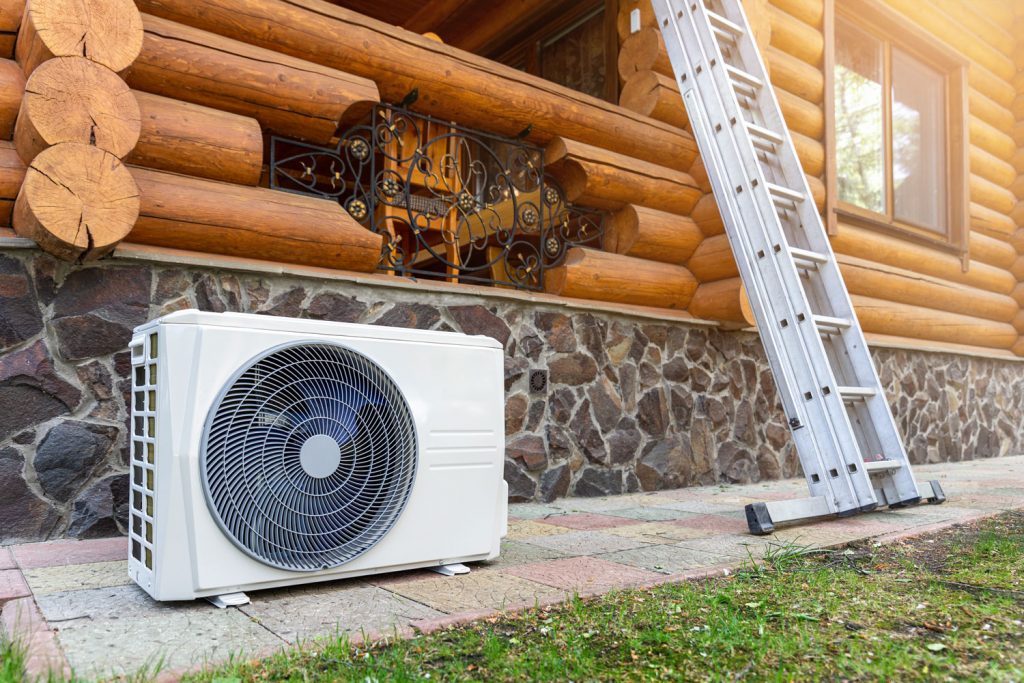
Heat pumps effectively heat and cool your home, the most common being the air-source heat pump because it is cheaper than most other types and is relatively easy to install.
However, their function starts to decline when the temperature outside reaches 30 degrees Fahrenheit and below. When this happens, the heat pump will need an auxiliary heat source, which is mainly from the electric coils or strips found within the system, or the gas furnace if it is a dual heat pump.
One heat pump may not be enough to heat your entire home, and extra units may be required. Thus, you may need a single-zone system or a multi-zone system. To decide on the most suitable for your needs, check out the pros and cons of each.
Check out our other posts on the size of heat pump you need for your home and know more about various types of heat pumps:
